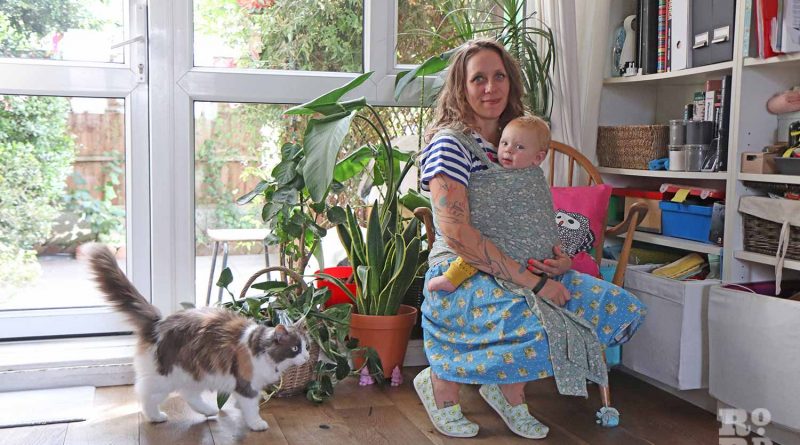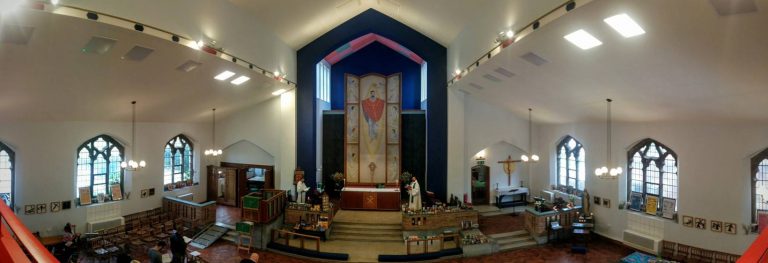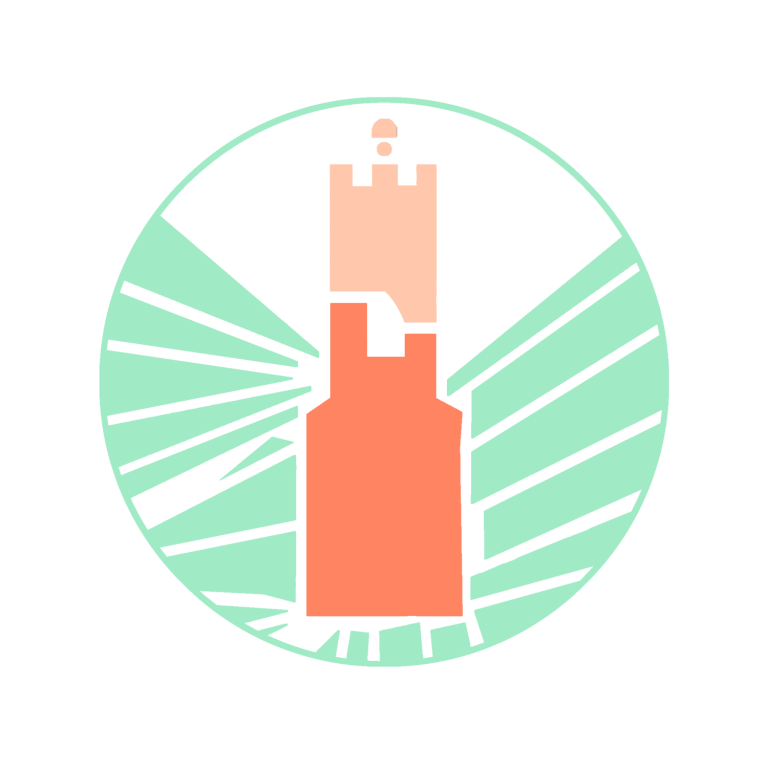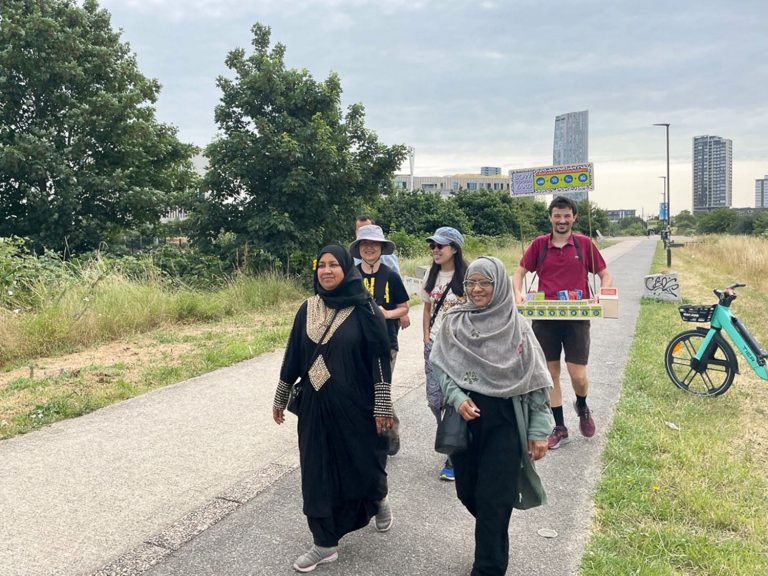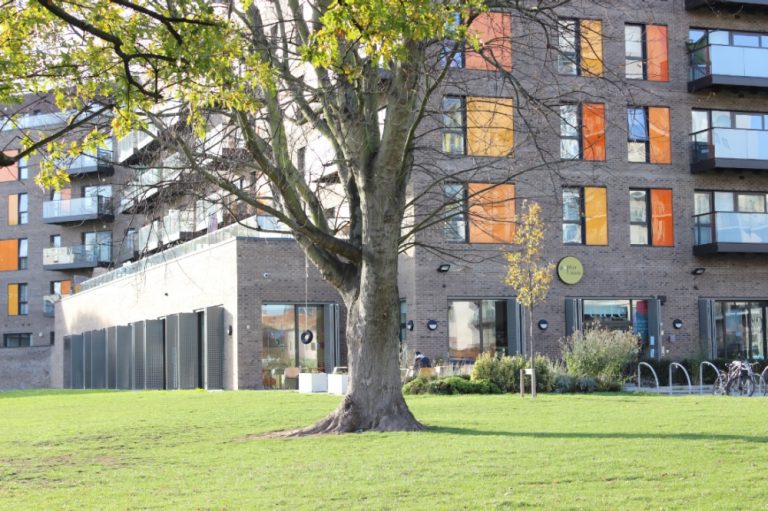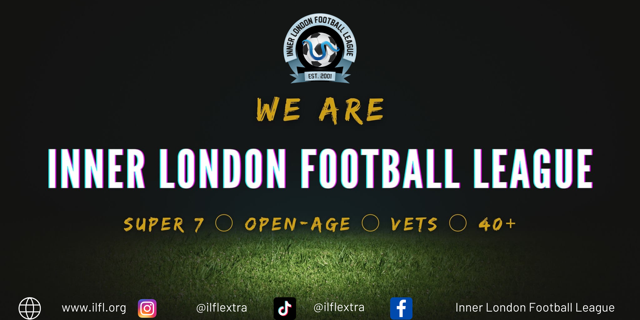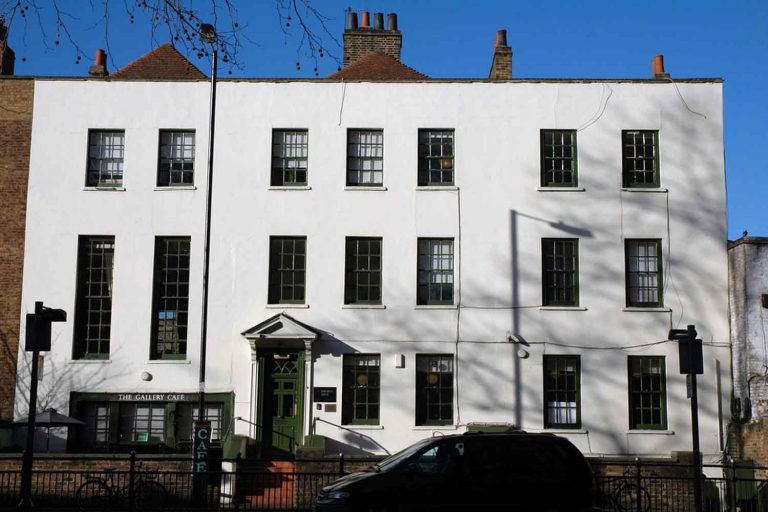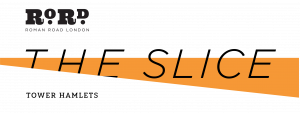‘We’re there to hold the parents not the babies’: Postpartum depression survivor Mel Pinet offering a lifeline to new parents
How a Globe Town mother of three is drawing on childhood trauma to destigmatise postpartum depression and provide mental health support to new and expecting parents.
When Mel Pinet, 40, was six years old, her father killed himself out of the blue, leaving her mother to raise Pinet and her two younger siblings in a small village where they lived in the Champagne region of France.
‘We’ll never really know what was going through his head,’ says Pinet: ‘But I really believe that things would’ve been different if he had mental health support. It just wasn’t talked about.’
Twenty-five years later Pinet gave birth to her first son at the age of 31. She was just one year older than her father when he died.
Pinet moved from France to the East End in 2007. Meeting at her house in Globe town, she wears her youngest child in a sling on her chest while her cat, Baguette, nestles into my lap and a profusion of house plants form a canopy on the shelf above her head.
Despite having a supportive partner and plenty of friends, she explains how isolated she felt after having her first baby: ‘I felt like I didn’t have a sense of purpose unless I was with my baby, and when I left him I’d just go crazy. It became really bad and I was suicidal. It was just awful.
‘I didn’t know what I was feeling was postpartum depression because I didn’t have any mum friends to talk to about it,’ says Pinet.
In the UK, up to 15 per cent of new mothers experience postpartum depression (PPD), and suicide is the leading cause of maternal death. Studies suggest that almost as many fathers also show symptoms of PPD, though it remains largely unexplored in men.
When Pinet went to her GP she was told that she was probably just hormonal or sleep-deprived. Despite the prevalence of postpartum depression, it took 18 months for Pinet to be diagnosed and she had to wait even longer before receiving specialist care.
‘I was sent to mental health services but they were so general and it wasn’t helping so I actually stopped going,’ Pinet recalls.
‘Then they found me someone who deals with postpartum depression and she helped me so much. And then, you know, I realised I wasn’t crazy. And this was not me. And this was not the person that I was. But it is so shocking that it took so long.’
When Pinet became pregnant with her second child, she felt it was her calling to do something about the lack of early intervention services for new mothers going through similar experiences.
Alongside her friend and perinatal emotional health coach, Helen Wright, who was also pregnant at the time, the pair launched the Tower Hamlets Family Meet-Up in 2017.
Starting in Pinet’s living room in Globe Town, the monthly meet-ups aimed to combat parental loneliness, and provide care for a range of perinatal issues relating to the period between conceiving a baby until the end of the first postnatal year, such as birthplace options, breastfeeding and infant sleep.
‘As a mother, you’re told it will pass, or that it’s because you’re not sleeping, or because your hormones are all over the place. No one really wants to say, yes, you have postnatal depression.’
Mel Pinet
Upon setting up the peer-support group, Pinet was already running her own business, the Wrap a Hug Sling Library, hiring out personalised baby slings and teaching parents how to use them.
Pinet and Wright also worked with Social Action for Health charity to improve local maternity services and were members of the Tower Hamlets Positive Birth Group which aims to reclaim the process of giving birth to make it a positive experience for mothers.
‘By that time we already had a large network in the area but we felt like we needed something bigger than the positive birth meet up that encompassed pre and postpartum care,’ says Pinet.
And so, the Tower Hamlets Family Meet-Up was born, which quickly outgrew Pinet’s living room and moved to Poplar Union where up to 50 new and expectant parents meet up every month.
From same-sex parents to nuclear families, single parents, and families with three parents, the Tower Hamlets Family Meet-Up is an inclusive, safe space built around the idea that it takes a village to raise a child.
As Pinet explains: ‘Helen [Wright] and I are professionals, and we have other perinatal professionals at the meet-ups, but you don’t need to have a psychologist or a counsellor on-site to be able to meet people who are like-minded and really let it out.
‘We’re not focussed on the babies, and I know that sounds weird, but we’re not here to hold the babies, we’re here to hold the parents.
‘And we say to people: you don’t have to talk about your baby for five minutes. Because your entire world is the baby and sometimes you might just want to talk about something else, like … politics,’ Pinet laughs.
‘We have mothers who come and have a little cry, and that’s fine because It’s about having a safe space to let it out. And mothers really need other mothers, it’s very very important, particularly if you don’t have family in the area.’
Having suffered from postpartum depression herself, Pinet recognises when other mothers are suffering from similar emotions and can signpost them to local mental health charities such as PANDAS Foundation and Mind Tower Hamlets.
At a time when preventative and early intervention services are being decimated across health and social care, such vital mental health services are increasingly falling to charities and individuals like Pinet.
Matresence refers to the physical, psychological and emotional changes that you go through when you become a mother. Patrescence is the paternal equivalent and both phenomena have been relatively unexplored in the medical community.
Pinet explains: ‘Most women get what we call baby blues which is a massive hormonal change three days after birth. For most women that passes but for some women it doesn’t and that’s what happened to me: it never went away.’
She believes that mental health checks need to be incorporated into postpartum care so that when women go for their six-week postpartum appointment, they are not just asked about their pelvic floor but also about their emotions and what headspace they’re in.
‘Because as a mother, you’re told it will pass, or that it’s because you’re not sleeping, or because your hormones are all over the place. No one really wants to say, yes, you have postpartum depression.’
Having lost a parent to suicide in childhood, Pinet knows better than most the potentially devastating repercussions of not intervening in mental health issues and wonders how her father would feel if he knew about the work that she has dedicated her life to.
‘In the UK, the biggest killer of new mothers is suicide which is why I always think we need to talk because I’ve been there. And unless you kick up a fuss, nobody’s going to ask you how you feel,’ says Pinet.
Pinet and Wright are starting a fortnightly sharing circle to encourage more honest conversations about perinatal mental health. Pinet expects it will be attended mainly by women but she wants to find someone to set up a dad’s sharing circle too.
Though fathers don’t go through the same physical and hormonal changes as mothers do during matrescence, they are just as susceptible to mental health challenges during and after birth.
As Pinet explains: ‘Often the dad takes over childcare when the woman goes back to work if they have shared parental leave, which is a great thing, but often that’s when it hits them that they are also very isolated.
‘For men, it can be even harder,’ she adds: ‘Men really feel they have to hold everything together. It’s about campaigning and running men’s groups but they’re not very well attended.’
While she recognises the need for more male support groups, Pinet thinks that dads might be reluctant to truly express themselves in her presence so is looking for a father to set one up in the area.
In the meantime, the Tower Hamlets Family Meet-Ups are open to everyone whether you’re in need of professional advice, a political chat or just a little cry.
As Pinet says: It’s for you to take a breather. Just come as you are, even if you’re a bit late.
If you enjoyed this piece, you might like our article about the Hackney Wick entrepreneur helping freelancers fight mental health stigmas.

